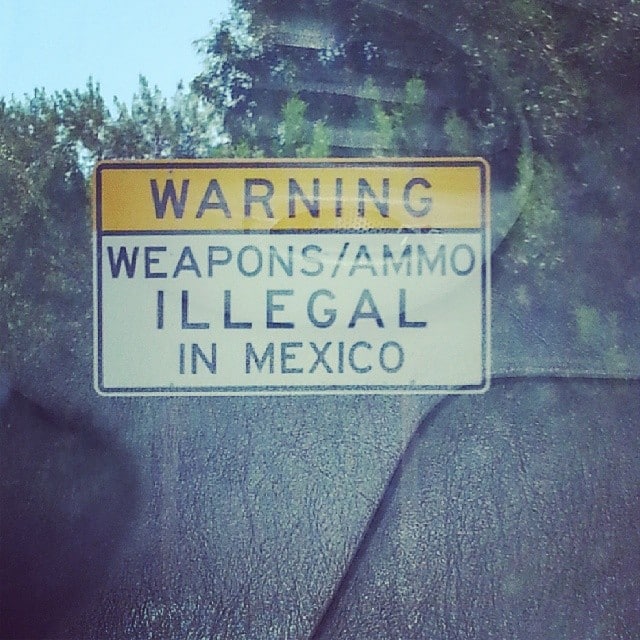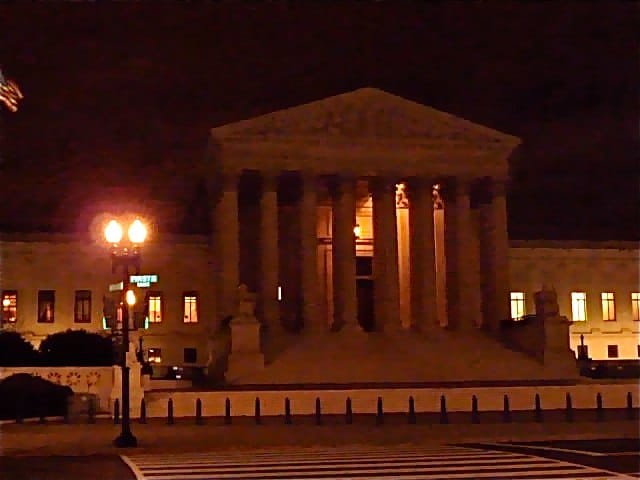District Court Permits Clean Air Act Action Against Canadian Company
The presumption against extraterritoriality is the principal tool that U.S. courts use to determine the reach of federal statutes. Last year, in Abitron Austria GmbH v. Hetronic International, Inc. (2023), the U.S. Supreme modified the presumption by requiring conduct relevant to a provision’s focus to occur in the United States in order for the application…
Continue ReadingAnother Victory for Mexico in Guns Litigation
Still flush with success from its win at the First Circuit against U.S. gun manufacturers, Mexico has scored a new victory in federal court—this time, against U.S. gun dealers. In Estados Unidos Mexicanos v. Diamondback Shooting Sports, Inc., the U.S. District Court for the District of Arizona (Judge Rosemary Márquez) ruled that Mexico could move…
Continue ReadingD.C. Circuit Defines “Venture” Under the TVPRA
On March 5, 2024, the D.C. Circuit issued its long-awaited opinion in Doe v. Apple, a suit against U.S. tech companies seeking to hold them liable under the Trafficking Victims Protection Reauthorization Act (TVPRA) for forced labor and human trafficking used to mine cobalt in the Democratic Republic of the Congo (DRC). (Disclosure: I joined…
Continue ReadingThe Extraterritorial Reach of Criminal Statutes
When federal statutes do not indicate how far they reach, courts apply a presumption against extraterritoriality to limit their geographic scope. Last year, in Abitron Austria GmbH v. Hetronic International, Inc. (2023), the Supreme Court revised the presumption by requiring conduct in the United States for a statute’s application to be considered domestic. Meanwhile, lower courts…
Continue ReadingFirst Circuit Allows Some of Mexico’s Claims Against Gun Manufacturers to Move Forward
Mexico has strict gun laws. There is one gun store in the country, and Mexico issues fewer than fifty gun permits a year. Yet Mexico has the third most gun-related deaths in the world because it borders the United States. An estimated half million guns flow from the United States into Mexico each year. In…
Continue ReadingHow to Criticize U.S. Extraterritorial Jurisdiction (Part II)
[This post is based on a lecture delivered at Wuhan University School of Law on October 15, 2023] There are better and worse ways to criticize U.S. extraterritorial jurisdiction. In yesterday’s post, I discussed some shortcomings of a February 2023 report by China’s Ministry of Foreign Affairs, “The U.S. Willful Practice of Long-arm Jurisdiction and…
Continue ReadingHow to Criticize U.S. Extraterritorial Jurisdiction (Part I)
[This post is based on a lecture delivered at Wuhan University School of Law on October 15, 2023] China has been critical of U.S. extraterritorial jurisdiction. In February, China’s Ministry of Foreign Affairs issued a report entitled “The U.S. Willful Practice of Long-arm Jurisdiction and its Perils.” In the report, the Ministry complained about U.S….
Continue ReadingCourt Rejects Challenge to OFAC Blocking Order
Sanctions are an increasingly important part of United States foreign policy, and cases challenging them are also of growing significance. Sanctioned entities face an uphill battle in court however, as illustrated by a recent decision from the Southern District of New York: Rusaviainvest, OOO v. Yellen. Rusaviainvest, OOO (the plaintiffs) challenged an order by the…
Continue ReadingSupreme Court Denies Cert in Extraterritorial Wire Fraud Case
The Supreme Court denied cert this morning in Elbaz v. United States, a case involving the extraterritorial reach of the federal wire fraud statute. The order lets stand a decision of the Fourth Circuit holding that the wire fraud statute could be applied to a scheme to defraud investors centered in Israel based on two…
Continue ReadingWill the Supreme Court Resolve the Circuit Split on the Geographic Scope of Wire Fraud Statute?
The federal wire fraud statute is a workhorse for federal prosecutors. In 2021, there were more than 4,500 federal prosecutions for fraud, theft, or embezzlement, constituting 8% of federal criminal cases. The wire fraud statute is particularly important in transnational fraud cases, because communicating with people in the United States using U.S. wires is considered…
Continue Reading








